Fears gorgeous Pacific Northwest city that thrived during COVID is becoming new Seattle as downtown is destroyed by Dem mayor’s woke policies
There are growing fears that the city of Spokane is quickly becoming the new Seattle of Washington state due to its rising homeless population and ongoing opioid crisis.
The eastern Washington city is currently grappling with ongoing problems including widespread homelessness, fentanyl use and general lawlessness, while the city’s mayor is focusing on “harm reduction” to address the problem.
The city had grown tremendously during the pandemic, becoming a popular destination for young professionals and senior couples.
But the ongoing problems are becoming a source of frustration for some local businesses, forcing them to close their doors.
Earlier this month, two-time James Beard Awards semifinalist Chad White announced that he was closing his beloved restaurant Zona Blanca Ceviche Bar after it was burglarized twice within 24 hours.
After eight years of running the business in downtown Spokane, he said the decision came down to what was best for his staff and customers.
Spokane has thrived during the pandemic, emerging as a popular destination for young professionals and couples in their golden years.
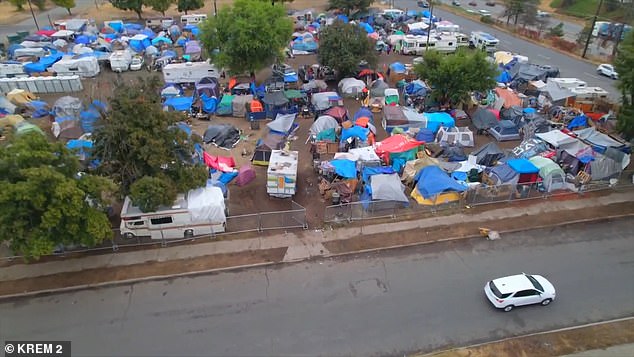
The eastern Washington city is currently struggling with ongoing problems related to widespread homelessness, fentanyl use and general lawlessness.
In an open letter, White wrote, “The hard truth is that we, like many other businesses in downtown Spokane, have had a challenging and difficult journey.
“The increasing crime, visible drug use and damage to public and private property make it increasingly difficult to create a safe environment for our team and partners, who are like family to me, and to you, our valued guests.”
He asked local leaders to address the issues. If he had trouble keeping a restaurant open amidst so much chaos, he said, a restaurant owner with lesser fame didn’t stand a chance.
“The challenges we face are real and growing. If we do not take immediate action to improve safety and wellbeing in our city centre, many more businesses, especially smaller ones, will face even greater challenges in the months ahead,” White said.
The decision to close the restaurant was made after it was broken into twice within 24 hours.
According to a local businessman who has 770KTTHit was ‘looted and plundered during the evening by a gang of criminals who kept coming and going.’
Business leaders use email communications to connect with each other, share stories, and give each other advice.
A real estate agent who wrote in the topic about the break-ins told the site that he was “angry and frustrated” when he visited the business.
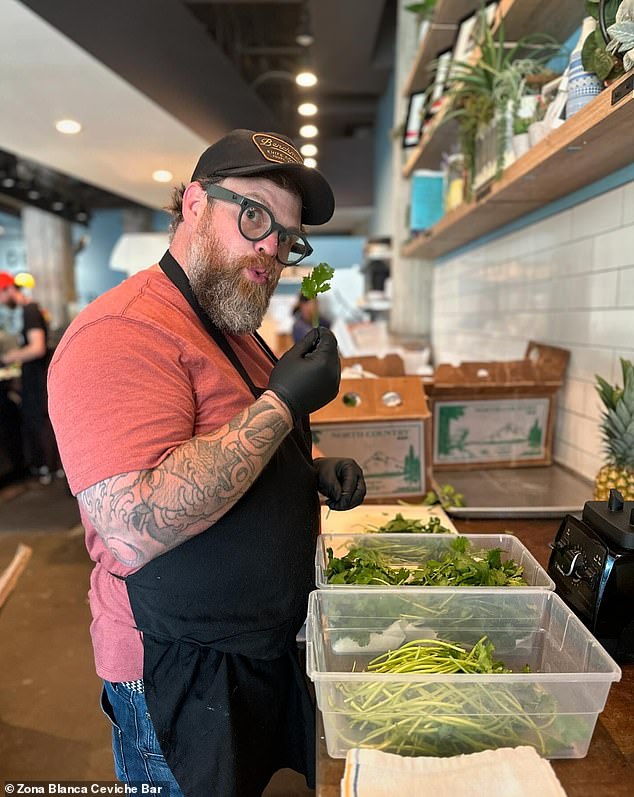
Chad White said he would close his beloved restaurant Zona Blanca Ceviche Bar after two burglaries in 24 hours
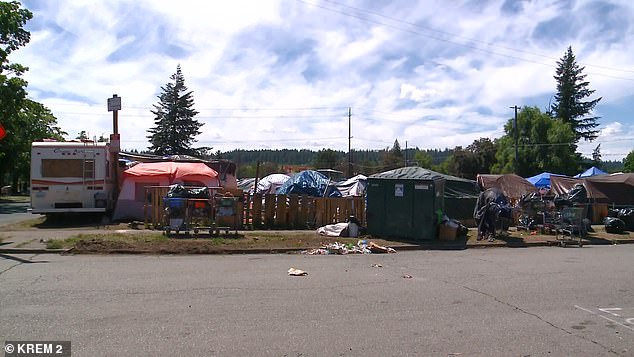
In June, the mayor confirmed that the number of overdoses had increased by 30 percent compared to the same period last year
“There were six people camping under the ‘no camping’ sign, three of whom were actively using drugs when I arrived,” he wrote.
The agent added that “the fatigue is real and it’s absolutely exhausting.”
“We can no longer allow our businesses to be terrorized in this way,” he said.
“When 80% of crimes are committed by just a small number (20-30?) of individuals, we need a law that tackles these people.”
He explained that a person involved in the first break-in at Zona Blanca was arrested the next day by Spokane police and was booked on two previous charges of burglary and theft unrelated to the restaurant break-in.
The realtor wondered how it was possible for this person to wander the streets of the city center?
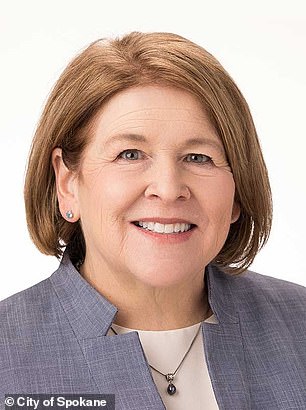
Spokane Mayor Lisa Brown has declared a state of emergency to respond to the opioid crisis plaguing the city
“Let’s not confuse matters, these are drug addicted criminals who need to be locked up,” he said.
In June of this year, Spokane Mayor Lisa Brown declared a state of emergency to address the opioid crisis in the city.
At a news conference confirming the plans, the Democrat said the number of overdoses had increased by 30 percent compared to the same period last year.
In response, authorities have invested in harm reduction policies, such as locations where users can have their drugs tested for fentanyl to prevent overdose deaths.
In February of this year, Hallie Burchinal, an addiction treatment specialist, CREM that she wished fentanyl would disappear and heroin would become the drug of choice again.
“We see people dying on a regular basis. It’s definitely getting worse,” she said.
Just three years ago, she said, staff would see two or three overdoses a week. Now they see multiples every day.
The local government also plans to change the housing status to a “protected class” so that homeless people can get help finding work.
In January of this year, former city council member Mike Allen said The central square that downtown Spokane was a “wasteland.”
“It’s only gotten worse with the litter, the vandalism and the drug users,” he said.
“It’s a wasteland now. I’ve seen people shooting in doorways. We’ve seen violence in Riverfront Park. This is not the Spokane of six, seven years ago.”
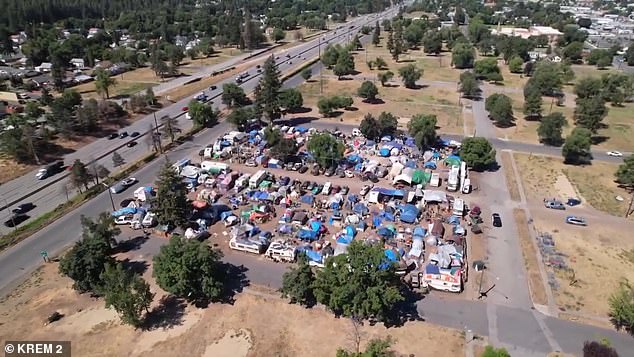
In June of last year, the state moved into Spokane to close the largest homeless camp in Washington, nicknamed Camp Hope
Gordon Hester, president and CEO of real estate company Kiemle Hagood, added: “The last three years have been terrible.”
“It’s so discouraging. When you look at it from a real estate perspective, when you’re trying to attract businesses downtown and you have this kind of thing, there’s no way I can convince people that it’s safe to do business,” he said.
The two told the newspaper that they noticed that homeless people were becoming more and more audacious in committing crimes in public.
Both men agreed that current policies needed to change to help the city.
Last June, the state moved to Spokane to close the largest homeless camp in Washington, nicknamed Camp Hope.
It housed 600 homeless people and was originally opened as a protest against the lack of available shelter beds.
Eventually, authorities cleared the area due to concerns about crime and drug use, and service providers moved residents into new housing options.
